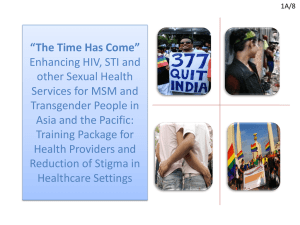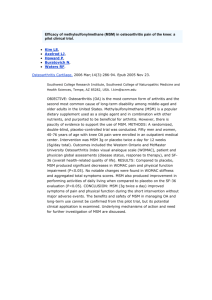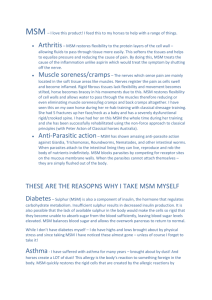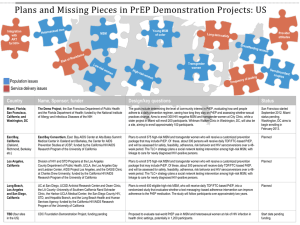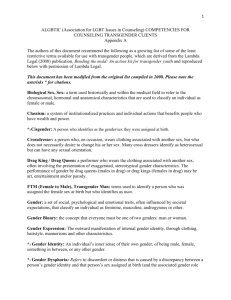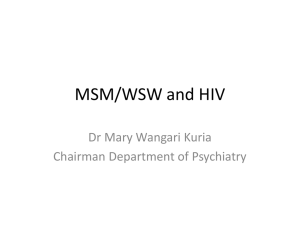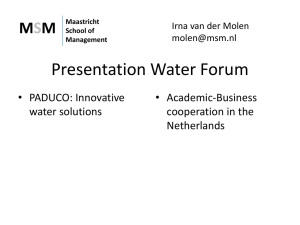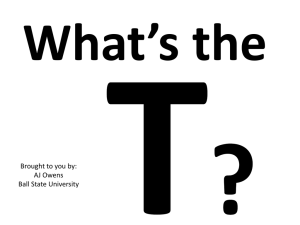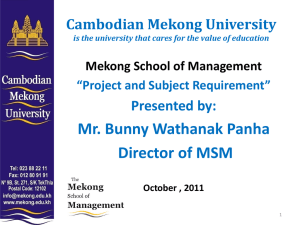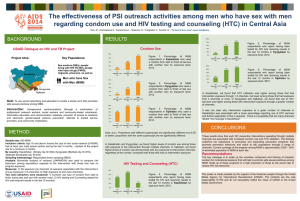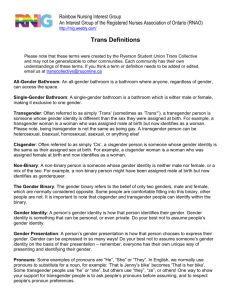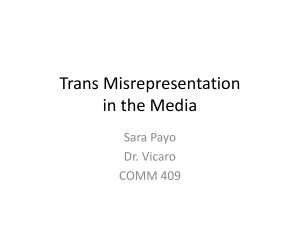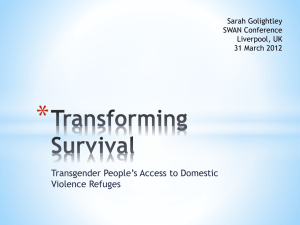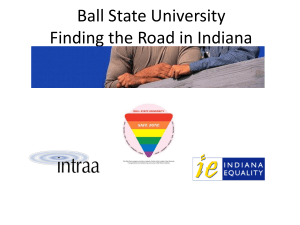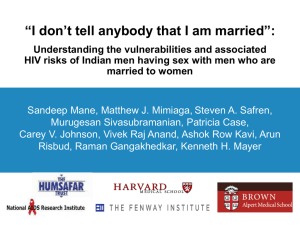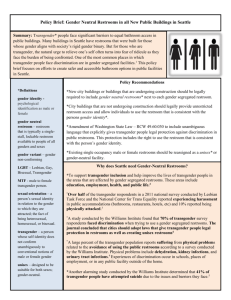Module 5 - PowerPoint Presentation
advertisement
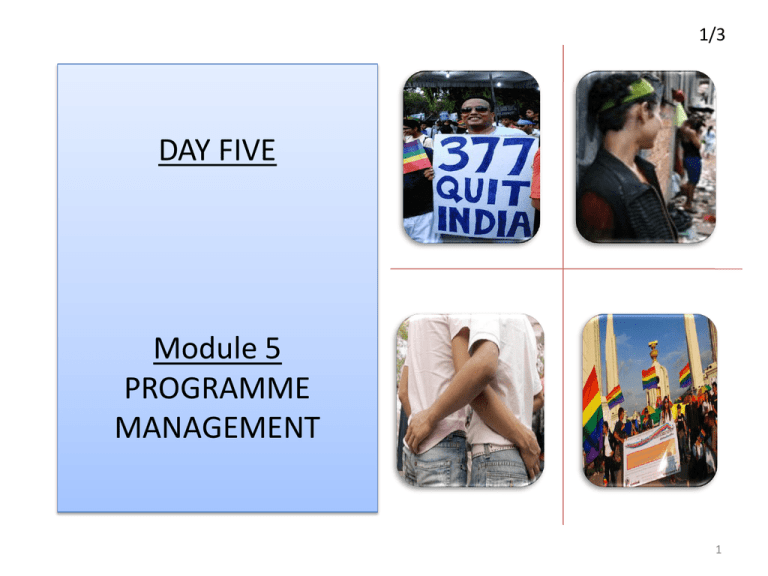
1/3 DAY FIVE Module 5 PROGRAMME MANAGEMENT 1 2/3 Overview of Module 5 •Terms and definitions •Introducing the 2011 Global MSM and TG Guidelines. •Exploring core issues in MSM and transgender service delivery and HIV programming •MSM and transgender continuum of prevention-tocare-and-treatment •The 2011 WHO comprehensive package of services for MSM and transgender people •MSM and transgender public health partnerships •Enabling environments and supportive interventions •How laws and policies shape HIV’s impact on MSM and transgender People • Human rights and social justice frameworks Context Building MSM and Transgender Programming Enabling Environments •Research – getting the right information •Using policy – advocating for and protecting MSM and transgender programmes •M&E - how you decide what’s working • Implementing and managing partnerships in MSM/transgender services • Good HR, financial and quality management skills Strategic Information Managing Programmes 3/3 PROGRAMME MANAGEMENT • Managing up, down, out & in • Implementing and managing partnerships in MSM and transgender services • Managing people, finances and quality Management 3 1/9 Session 1 Managing up, down, out and in This session will cover: 1. Assisting leaders to justify, establish and defend the programme 2. Managing external relationships: media, general community 3. Managing implementing partners 4. Managing yourself. 4 2a/9 Key Learning Points • How to manage ‘up’ to government/donors; • ‘Down’ to programme staff and implementing agencies; • Managing the external environment – ‘out’; and • Managing yourself – time management, leadership, stress management – ‘in’. 5 2b/9 Managing your programme Managing up • Finding and keeping the financial resources your programme needs • Helping leaders to advocate for, or defend your programme • Keeping your managers informed • Reporting progress and success Managing down • Setting strategic direction • Managing the workloads and performance of staff and implementing partners • Contracting, managing quality • Keeping the peace Managing out • Working to build media support – getting positive stories into the media and managing negative stories • Securing the support of community and religious leaders – managing criticism • Balancing community interests and expectations Managing in • Time management • Stress management • Information management 3/9 Managing ‘up’ - Government Scan to see who can have a positive or negative effect on MSM and transgender programmes, then work proactively to increase support and reduce resistance • Government – Prepare programme rationale, briefing materials and policy briefs ahead of time (don’t wait for the crisis to happen) – Keep your information up-to-date (be prepared) – Work with opponents and conservative politicians – Analyse and interpret the data that is released – shape the messages that go out – Work with other Departments – e.g. police and justice. 7 4/9 Managing ‘up’ – donors and other funders • Try to be in control – set your programme’s aims and objectives, based on stated community need and take this to funders and donors • Have a strategic plan and a set of priorities and take this to donors – don't wait for them to set priorities • Take on projects that suit these needs – try to say “no” to, or renegotiate funding that is not in line with this • Take time to understand what the donor or funder needs: – Develop the relationship – Understand their needs and pressures – Establish agreement about what and how to communicate – i.e. ‘rules of engagement’. 8 5/9 Managing ‘down’ • People in your programme: – – – – Job descriptions Workplan Support, supervision and performance management In-service training. • Implementing partners: – Clear and current contracts – Published standards of care, programme implementation – Regular monitoring and capacity development – Effective information management systems. 9 6/9 Managing ‘out’ Managing the external environment • Media – Produce media guidelines on MSM and transgender people – Develop working relationships with and train publishers, journalists and other media outlets – Publicize positive stories – Have policies on exploitation and confidentiality. • Religious and community leaders – Find supportive leaders and work with them to engage others – Help supportive leaders to identify messages of tolerance and support – Hold briefings and engagement seminars. • Police and public security – Gain permission for programmes to function in illegal environments – Work with police on policies and training to reduce arrest, harassment, and violence. • Other NGOs – Building strong links with other NGOs. 10 7/9 Managing ‘in’ • Time management – Develop a workplan; set and keep to priorities – Make strategic decisions about how to spend your time – say NO to some things. • Information management – – – – Get organized Have a good filing system Document meetings/agreements Back up essential program data • Stress management – – – – – Take breaks Look after your physical health Establish routines that support health Lead by example Get regular support and supervision. 11 8/9 12 9/9 Exercise for small groups Four Groups 1. 2. 3. 4. UP DOWN OUT IN 13 1/1 MANAGING PARTNERSHIPS Panel presentation: What makes partnerships work? Guest presenters from among participants 14
